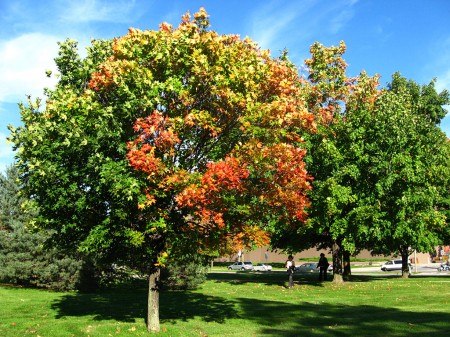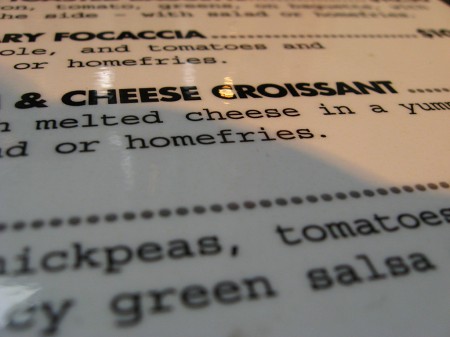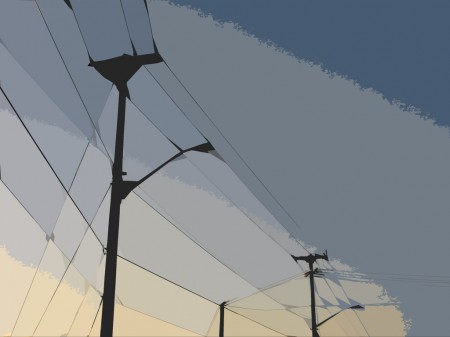I have a Google Alert set up that forwards news stories including the terms “Canada” and “Climate Change.” Every day, it provides a few very misleading items, usually published on personal blogs or the canada.com network: a group of publications including the Vancouver Sun, Province, and Chilliwack Times. A piece in the latter caught my attention the other day, written by Jack Carradice. It seems worth examining in some detail. It reads like a grab-bag version of grist.org’s collection of invalid ‘sceptical’ arguments.
Complexity and uncertainty:
One aspect becoming very clear is that the science of climate change is much more complex than many seem to believe and much of the science involved is not well understood. In fact, it is beginning to appear that we know little if anything about some of the factors related to climate change.”
This is true but misleading. As discussed here before, the core facts about climate change are now beyond dispute. The biggest uncertainties have to do with feedback loops, the timing of impacts, and specific higher-order outcomes arising from human-induced temperature change.
Carbon dioxide not the cause:
The notion that man-caused carbon dioxide emissions are the sole cause of “global warming” and that man can control climate change in any meaningful way has pretty much been proven as nonsense.
While it is true that CO2 emissions are not the sole cause of climate change, this statement is simply false. The Fourth Assessment of the IPCC – the most authoritative scientific assessment of climate science – concludes that “Warming of the climate system is unequivocal.” It states further that “Most of the observed increase in global average temperatures since the mid-20th century is very likely due to the observed increase in anthropogenic greenhouse gas concentrations.” Non-CO2 factors that influence climate change include emissions of nitrous oxide and methane, as well as deforestation. The fact that there are non-CO2 contributions in no way diminishes our certainty that human carbon dioxide emissions cause the planet to warm.
The role of water vapour:
Some of the basic facts the public have not been made aware of are that water vapour is the primary greenhouse gas accounting for up to 90 per cent of the greenhouse effect.
Nobody denies that water vapour is the greenhouse gas with the largest effect. What one needs to remember is that the amount of water vapour in the atmosphere is determined by the temperature (just like how you can stir more sugar into hot water than cold). As such, water vapour magnifies the effect of CO2 emissions.
Natural emissions are larger:
Also that 90 per cent of annual carbon dioxide emissions come from natural sources and have nothing to do with the burning of fossil fuels.
Gross natural emissions are larger than human emissions, but they are balanced by natural absorption. Human beings add about 29 billion tonnes of carbon dioxide to the atmosphere every year through the burning of fossil fuels. Some gets absorbed into the deep oceans, but much endures in the atmosphere to cause warming.
Necessity of CO2:
It is not generally publicized that carbon dioxide is essential for plant life and without it we would all die of starvation.
Nobody denies this either, and you would need to be thick-headed to believe that climate scientists advocate the elimination of all CO2. As Carradice correctly points out, the natural greenhouse effect is essential for maintaining an appropriate temperature for life on earth. Of course, it is incorrect to say “Some CO2 is necessary, therefore the more of it around the better.” The lesson from one hundred years of ever-more-detailed climatic science is that there is good reason to fear the consequences of anthropogenic climate change.
Solar radiation changes:
The effects of changes in solar radiation also seem to be overlooked by many observers.
Not by the IPCC. The Fourth Assessment Report concludes that changes in solar irradiance produce 0.12 watts per cubic metre of radiative forcing. CO2 produces 1.66 watts per cubic metre, while methane, nitrous oxide, and halocarbons produce 0.48, 0.16, and 0.34 respectively.
Methane from Indian cows:
Methane is a much more powerful greenhouse gas than carbon dioxide… By some calculations if India reduced their population of sacred cows by 25 per cent it would reduce the amount of greenhouse gas going into the atmosphere by the same amount as taking every car and truck in Canada off the road.
These assertions oddly contradict others above. They acknowledge that both methane and CO2 are greenhouse gasses and that emitting them warms the planet. I couldn’t tell you off the top of my head whether livestock emissions in India are bigger than automotive emissions in Canada, but making the comparison requires accepting the basics of climate physics.
Climate has always been changing:
Forget the climate change hysteria. Climate has always been changing.
True. Indeed, if humans were suddenly dropped into many of the states the world has experienced, we would have a tough time surviving. There is every reason to think that long-term natural climate change might eventually produce conditions adverse for human beings. What anthropogenic greenhouse gas emissions are doing is accelerating those dangers enormously. Whereas the natural carbon cycle is largely a matter of geology, subduction, and volcanoes, we are liberating the carbon in fossil fuels at a break-neck pace.
In short, Jack Carradice’s piece is an orrery of errors: rife with every form of misunderstanding and misinformation. It is hard to imagine a ‘news’ story that would do a worse job of informing readers about the realities of climate and climate science. Some of the points are entirely valid, but they are woven into an incoherent tapestry alongside errors and distortions. The article says simultaneously that climate change isn’t caused by human activities and that it is, that more CO2 would be bad and that it would be good, that concern about climate change is misplaced and that it is valid.
Hopefully, readers of the Chilliwack Times will be discerning enough to reject Carradice’s muddled position and read something both accessible and accurate on climatic science, such as Andrew Weaver’s “Keeping Our Cool,” Richard Alley’s “The Two Mile Time Machine,” or Al Gore’s “An Inconvenient Truth.”








